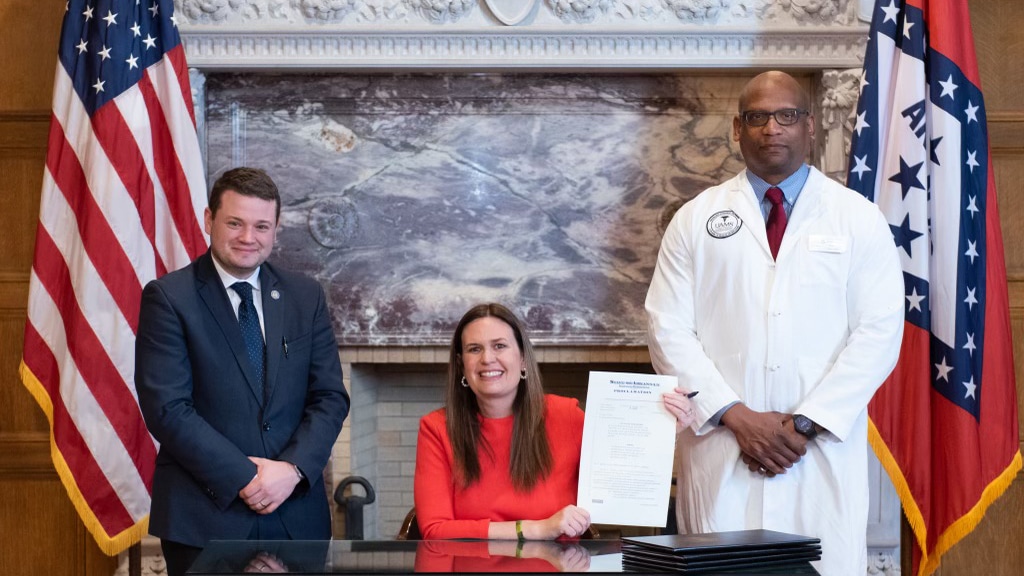UAMS Plays Key Role in New State Legislation for Physician Assistants
| Because of a UAMS team effort, the Arkansas Legislature passed, and Gov. Sarah Huckabee Sanders on May 5 signed into law Arkansas Act 303, allowing physician assistants to be enrolled in Medicaid as “rendering providers.”
The act is expected to reduce the workload on physicians who supervise physician assistants working with patients covered by Medicaid and make the profession even more appealing to the clinics, practices, and hospitals with open positions.
“Overall, I think it will increase the opportunities for physician assistants to get jobs in more primary care facilities where Medicaid patients are seen because it decreases the work load and red tape involved in employing them,” Edward Williams, DMSc, M.Ed., PA-C, said.
Williams is chair of the UAMS College of Health Professions Department of Physician Assistant Studies and also co-chair of the Arkansas Academy of Physician Assistants (ARAPA). The academy is a professional organization of physician assistants “working to eliminate barriers to care and enhance existing health care delivery systems,” according to its website.
Williams said he first discussed the proposed legislation with College of Health Professions Dean Susan Long, Ed.D., and then they both met with Andy Davis, vice chancellor of Institutional Relations, and Stephanie Gardner, Pharm.D., Ed.D., provost and chief strategy officer.
Davis worked with the Arkansas Hospital Association and the Arkansas Medical Society to develop language that all stakeholders could support.
Davis and Williams worked with state Rep. Aaron Pilkington and state Sen. Justin Boyd. Pilkington was the bill’s sponsor in the House and Boyd in the Senate. Pilkington earned his master’s degree in health care administration from UAMS and Boyd is an alumni of the UAMS College of Pharmacy.
When it came time for votes in each legislative body, the bill passed easily.
One reason the legislation may have garnered strong support is because the need is so great in parts of rural Arkansas where there is a shortage of health care providers, and desire to keep our graduates in working in Arkansas.
“Some of our students come from those areas and want to go back there to practice,” Williams said. “That’s part of what many want to give to the profession, too. I think it’s important to any provider to feel like they are needed rather than just employed.”
The other reason for the legislative success was the support from the “leadership chain” that included Gardner, Long and Davis, he said.
Feedback from the health care community has been very positive, and Williams said he and some of his ARAPA colleagues have learned a lot about the legislative process. He said they hope to repeat the success with related proposals in the next regular, legislative session in 2025.
